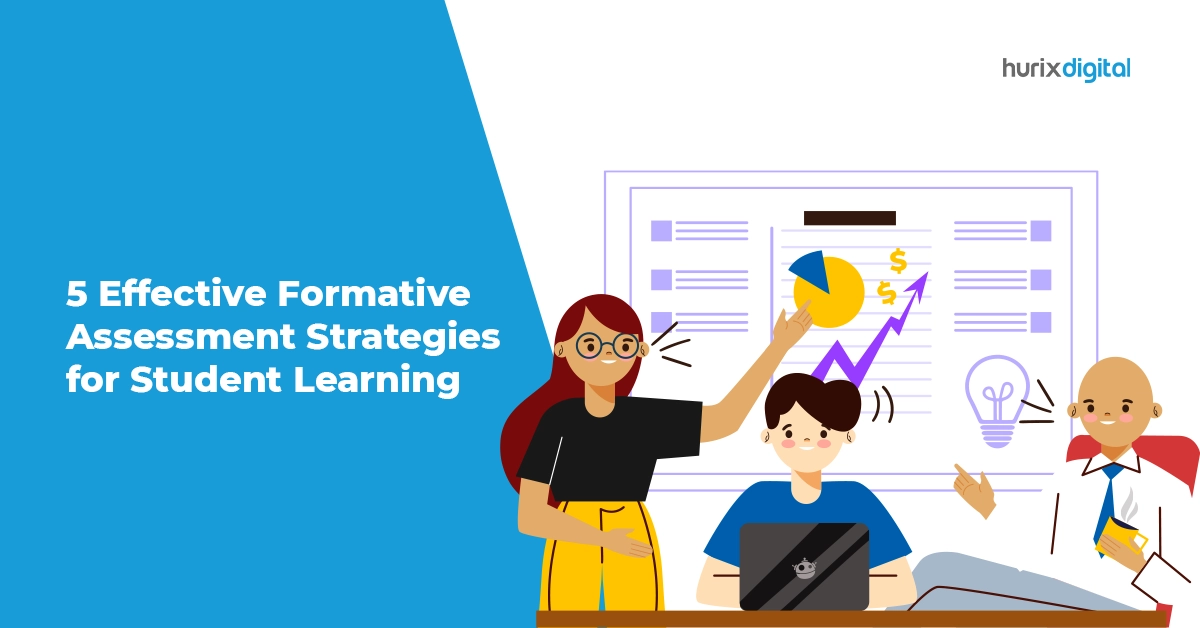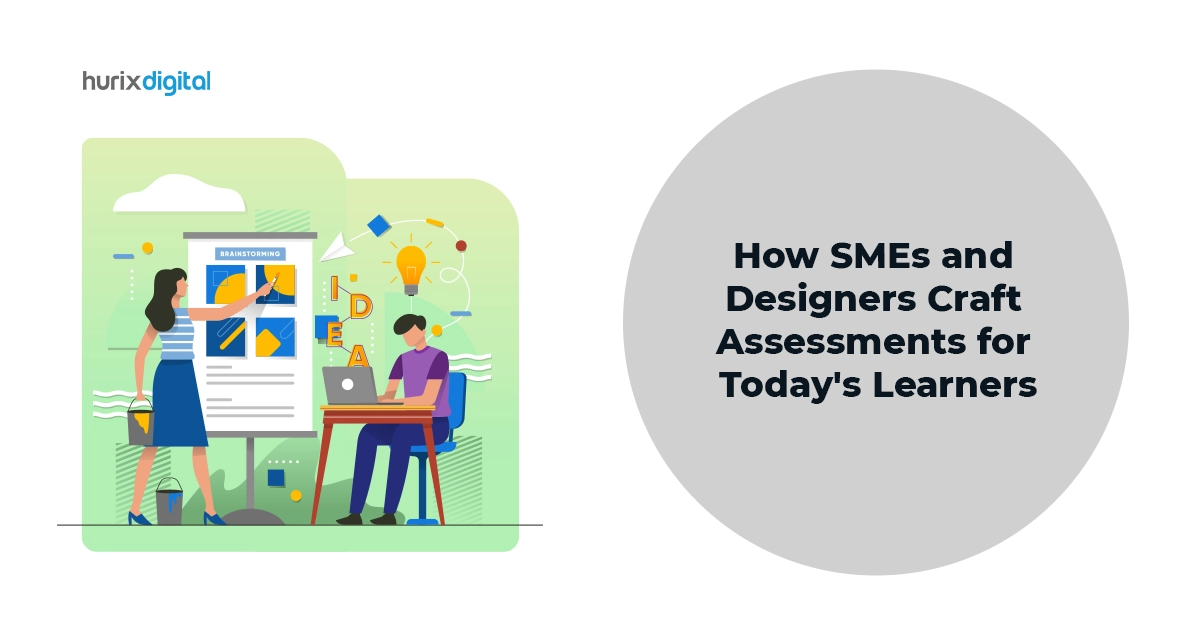When it comes to boosting student learning, innovative formative assessment strategies play a crucial role in shaping instructional approaches.
Formative assessment is not just a test at the end of a unit. It is a continuous process of collecting and using evidence of learning to provide feedback and adjust instruction. It helps students and teachers learn from each other and grow together.
Formative assessments come with a plethora of benefits. It can increase student motivation, engagement, self-regulation, and achievement. It can also help teachers identify and address students’ strengths and weaknesses, monitor their progress, and give timely and specific feedback.
If you’re wondering how to use effective formative assessments in your classroom, we’ve got you covered. In this blog, we will explore five dynamic formative assessment strategies that are at the forefront of educational innovation in 2024. Read on!
Table of Contents:
5 Effective Formative Assessment Strategies for Student Learning
Below are the top five formative assessment strategies that can significantly enhance student learning outcomes:
1. Strategy 1: Exit Tickets
Exit tickets are short questions or tasks that students complete at the end of a lesson or activity. They are designed to check students’ understanding of the main learning objectives and to identify any gaps or misconceptions.
This is a prominent digital formative assessment tool that can also be used to collect feedback from students about the lesson, such as what they liked, what they found challenging, or what they want to learn more about.
Some examples of exit ticket questions are:
- What are three things you learned today?
- What is one question you still have about the topic?
- How confident are you in applying what you learned today?
- How would you rate the lesson on a scale of 1 to 5?
- What is one thing you would change about the lesson?
Exit tickets can be done on paper, online, or verbally. One of the advantages of using digital tools for exit tickets is that they can provide instant feedback and data analysis for both students and teachers. Google Forms and Socratives are some popular digital tools for exit tickets.
2. Strategy 2: Think-Pair-Share
Think-pair-share is a collaborative learning strategy that involves three steps:
- Think: Students think individually about a question or problem the teacher poses.
- Pair: Students pair up with a partner and discuss their thoughts and ideas.
- Share: Students share their answers or solutions with the whole class or a larger group.
Think-pair-share is a simple and effective way to engage students in higher-order thinking, such as analysis, synthesis, and evaluation. It also promotes communication, listening, and social skills. This strategy can be used for any subject or topic and can be adapted to different levels of difficulty and complexity.
Some examples of think-pair-share questions are:
- How would you solve this math problem?
- What are the main arguments for and against this issue?
- How does this concept relate to your own experience or interest?
- What are some of the similarities and differences between these two texts? How would you explain this phenomenon to a younger student?
Students can do think-pair-share verbally, in writing, or online. Among the advantages of implementing think-pair-share with digital tools is their capacity to foster and improve student engagement and teamwork. Some of the popular digital tools for think-pair-share are Padlet, Flipgrid, and Nearpod.
Also Read: AI in the K-12 Classroom: Enhancing Personalized Learning, Engagement, and Assessment
3. Strategy 3: Peer Feedback
Peer feedback is giving and receiving constructive comments and suggestions from peers on one’s work or performance. It can help students improve their skills, knowledge, and confidence, as well as develop critical thinking, self-reflection, and metacognition.
This formative assessment strategy can also foster a culture of collaboration, respect, and support among students.
Some examples of peer feedback activities are:
- Peer Review: Students exchange their drafts or products with a partner or a small group and provide feedback based on a rubric or a checklist. The feedback can focus on the content, the structure, the language, the presentation, or any other aspect of the work. The feedback can be given orally, in writing, or online.
- Peer Assessment: Students evaluate their peers’ work or performance using a scale or a rating system. The evaluation can be based on the same criteria as the teacher’s assessment or on different criteria agreed upon by the students. The evaluation can be done individually or collectively and can be anonymous or not.
- Peer Coaching: Students work together in pairs or teams to help each other achieve their learning goals. They can observe, question, advise, and encourage each other and share their experiences and strategies. They can also set goals, monitor progress, and celebrate achievements.
4. Strategy 4: Self-Assessment
Self-assessment is a process of evaluating one’s work or performance using specific criteria and standards. This formative assessment strategy can help students develop self-awareness, self-regulation, and self-improvement. It can also enhance students’ ownership, responsibility, and autonomy over their learning.
Some examples of self-assessment activities are:
- Self-Check: Students check their work using a rubric, a checklist, or an answer key. They can identify their strengths and weaknesses and correct their errors or gaps. They can also rate their confidence or satisfaction with their work and set goals for improvement.
- Self-Reflection: Students reflect on their work or performance using questions or prompts. They can express their feelings, thoughts, and opinions about their work and analyze their learning process and outcomes. They can also identify what they learned, what they enjoyed, what they struggled with, and what they want to learn next.
- Self-Monitoring: Students monitor their progress and performance using tools such as graphs, charts, logs, or portfolios. They can track their achievements, challenges, and changes over time and compare their results with their expectations or standards. They can also adjust their strategies, actions, and goals based on their feedback and data.
Especially in the K12 sector, implementing self-assessment as a formative assessment strategy can have profound benefits for students. It not only promotes academic growth but also nurtures essential life skills crucial for their future success.
5. Strategy 5: Quizzes and Polls
Quizzes and polls are short and simple assessments that can be used to measure students’ knowledge, understanding, or opinion on a topic or subject. They can be used for various purposes, such as:
- Pre-assessment: To activate students’ prior knowledge and assess their readiness for learning.
- Post-assessment: To check students’ mastery and retention of the learning objectives.
- Formative assessment: To monitor students’ progress and provide feedback during the learning process.
- Summative assessment: To evaluate students’ achievement and performance at the end of a unit or course.
- Diagnostic assessment: To identify students’ strengths and weaknesses, and provide remediation or enrichment.
- Survey: To collect students’ feedback, preferences, or interests.
Some examples of quiz and poll questions are:
- What is the formula for the area of a circle?
- How do you feel about the lesson today?
- Which of these is an example of a renewable energy source?
- What is your favorite genre of music?
- How would you rate your confidence in solving this problem?
Students can use digital tools like Kahoot and Mentimeter for quizzes and polls, which will make the assessment more fun, interactive, and adaptive.
Also Read: How Assessment Management Software Can Improve Student Learning and Engagement
Conclusion
Formative assessment serves as more than just a measurement of student learning; it becomes a catalyst for its enhancement. By using formative assessment strategies, you can provide your students with timely and specific feedback and adjust your instruction to meet their needs and interests.
If you are looking for more digital tools and resources to support your formative assessment practices, Hurix Digital can help. We’re dedicated to supporting educators in their quest for effective and innovative formative assessment methodologies.
Contact us to learn more!







